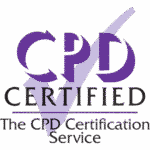Environmental Factors
Noise and Distractions
Environmental noise and distractions can significantly impair attention. Background noises such as traffic, conversations, or electronic devices can make it challenging to concentrate on tasks.
According to a study by Banbury and Berry, noise can reduce task performance by up to 66% and increase the time taken to complete tasks by 50% (SACAP).
Strategies to Improve:
- Create a Quiet Workspace: Set up a dedicated, quiet area for work or study. Use noise-canceling headphones if you can’t control the noise level.
- Limit Distractions: Keep your workspace free of unnecessary items that might distract you. Turn off notifications on your devices and use apps that block distracting websites.
Task Complexity
The complexity of a task can also affect attention. Tasks that are too challenging or too easy can lead to loss of focus.
A study published in the Journal of Experimental Psychology found that task complexity significantly impacts attention, with more complex tasks leading to greater cognitive load and reduced attention (SACAP).
Strategies to Improve:
- Break Down Tasks: Divide complex tasks into smaller, manageable parts. This approach makes it easier to focus on one part at a time.
- Adjust Difficulty: If a task is too easy, add elements that make it more challenging and engaging. If it’s too hard, simplify it until you build the necessary skills.
Individual Differences
Age and Cognitive Abilities
Age and cognitive abilities play a crucial role in attention. Younger children and older adults might have shorter attention spans, while cognitive abilities can vary significantly among individuals.
Research indicates that attention span improves significantly with age, peaking in adulthood before declining in older age (SACAP).
Strategies to Improve:
- Tailored Approaches: Use age-appropriate techniques to enhance attention. For children, use engaging activities and frequent breaks. For older adults, maintain a routine and engage in activities that stimulate the brain.
- Cognitive Training: Engage in exercises that challenge and improve cognitive functions. Puzzles, memory games, and learning new skills can help enhance attention.
Mental Health Conditions and ADHD
Mental health conditions such as anxiety and depression can impact attention capabilities.
Studies show that individuals with ADHD experience a 25-35% deficit in attention performance compared to those without ADHD (SACAP).
Strategies to Improve:
- Seek Professional Help: Consult with a mental health professional for diagnosis and treatment. Therapy and medication can help manage symptoms.
- Practice Mindfulness: Mindfulness techniques can help manage anxiety and improve focus. Meditation and deep-breathing exercises can be beneficial.
Physiological States
Fatigue
Fatigue is a significant factor affecting attention. Lack of sleep and physical exhaustion can reduce the ability to concentrate.
The National Sleep Foundation states that adults who get less than seven hours of sleep per night are more likely to experience attention lapses and cognitive impairments (SACAP).
Strategies to Improve:
- Prioritise Sleep: Ensure you get adequate sleep each night. Follow a consistent sleep schedule and create a restful environment.
- Take Breaks: Incorporate short breaks during work or study sessions to rest and recharge.
Hunger
Hunger can negatively impact attention and cognitive performance.
Strategies to Improve:
- Balanced Diet: Maintain a balanced diet with regular meals. Include brain-boosting foods such as fruits, vegetables, nuts, and whole grains.
- Stay Hydrated: Drink plenty of water throughout the day to stay hydrated and maintain cognitive function.
Stress Levels
High stress levels can impair attention and overall cognitive performance.
According to the American Psychological Association, high stress levels can reduce cognitive performance, including attention, by up to 50% (SACAP).
Strategies to Improve:
- Stress Management: Practise stress-reducing techniques such as yoga, meditation, and exercise. Regular physical activity can help reduce stress and improve attention.
- Time Management: Use time management techniques to reduce the stress associated with deadlines and workload. Prioritise tasks and avoid overcommitting.
Attention is influenced by a range of factors, including environmental, individual, and physiological aspects. By understanding these factors and implementing strategies to manage them, we can significantly enhance our focus and cognitive performance. Creating a conducive environment, tailoring approaches based on individual differences, and maintaining a healthy lifestyle are key to improving attention and achieving success in various areas of life.
FAQs
What are the main factors affecting attention?
The main factors include environmental noise and distractions, task complexity, individual differences in age and cognitive abilities, mental health conditions, and physiological states such as fatigue, hunger, and stress levels.
How can environmental factors affecting attention be managed?
Creating a quiet workspace, limiting distractions, breaking down complex tasks, and adjusting task difficulty can help manage environmental factors.
What strategies can improve attention in individuals with mental health conditions?
Seeking professional help, practising mindfulness, and using cognitive training exercises can improve attention in individuals with mental health conditions.
Why is sleep important for attention?
Adequate sleep is crucial for maintaining optimal cognitive functions, including attention. Lack of sleep can lead to fatigue and reduced concentration.
How does stress impact attention?
High stress levels can impair attention and cognitive performance. Managing stress through techniques like yoga, meditation, and exercise can help improve focus.
What dietary habits support better attention?
Maintaining a balanced diet with regular meals, including brain-boosting foods, and staying hydrated can support better attention and cognitive performance.








